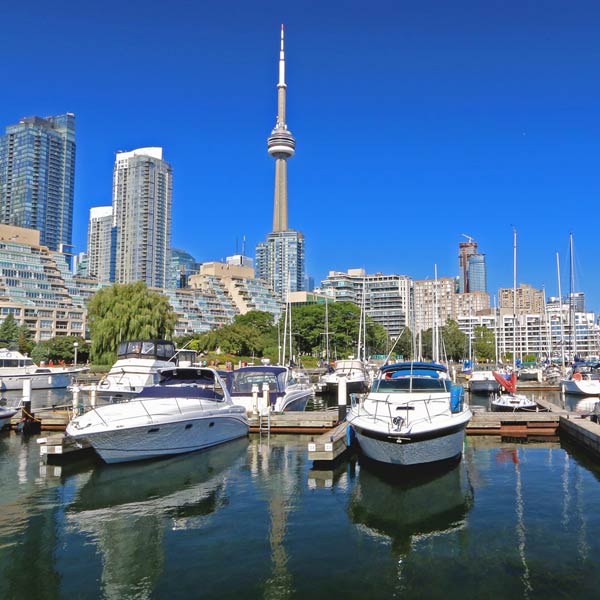Before packing, check this list of items prohibited from entering a particular country or region.
Key takeaways
- The UK is still geographically part of Europe after Brexit, but it is no longer part of the European Union (EU).
- The 90-day Brexit rule allows British citizens to visit Europe for short trips, but they will need a visa for extended stays.
- EU citizens (excluding those from the Republic of Ireland) moving to the UK must also apply for a visa to work, study or live in the country permanently.
- Visa requirements for UK citizens travelling to the EU post-Brexit vary by country and the purpose and length of the visit.
Is the UK still part of Europe after Brexit?
The UK is still part of Europe after Brexit geographically. However, since voting to leave in 2016, the country is no longer part of the European Union (EU), a political and economic partnership between 27 countries, including the Single Market and Customs Union. The UK's "European exit" is commonly known as "Brexit".
While the UK maintains close relationships with other European countries, it operates independently in areas such as residency, trade, customs and travel. The UK completed its exit from the EU on 31st January 2020.
The Trade and Cooperation Agreement outlines post-Brexit relations between the UK and the EU. It enables tariff-free trade for certain goods, fishing rights, fair competition regulations and continued security cooperation.

Do British citizens need a visa for Europe?
British citizens do not need a visa for short stays in Europe — up to 90 days in a 180-day period. Plus, if you have residence rights in an EU country under the EU-UK Withdrawal Agreement, you can enter your country of residence without a visa. Rules apply to all countries within the Schengen Area, including popular destinations like France, Germany, Spain, Norway and Italy. However, you will need a visa or permit for longer stays, such as work or study.
How long can I stay in Europe after Brexit?
British citizens travelling to EU and Schengen Area countries post-Brexit can stay for up to 90 days within 180 days. For extended stays, you will need to apply for a visa. Other options for longer stays include time-specific work, study visas and residency permits.
How can I live in Europe after Brexit?
UK citizens can live in Europe after Brexit by following each country's immigration laws. One exception is the Republic of Ireland, where pre-Brexit rules remain.
Several European Union (EU) countries offer residency permits that require proof of income, health insurance, employment, or property. Popular destinations to work and live, like Spain and Portugal have specific requirements for non-EU citizens, depending on which visa you apply for.

Temporary working in Europe after Brexit
British citizens can work in Europe for short periods post-Brexit, but rules vary from country to country. Most European Economic Area (EEA) nations and Switzerland require work visas or permits for non-EU citizens, including Brits.
Visa types and permits depend on a range of factors, including:
- The type of work,
- Your duration of stay,
- Your European employer's sponsorship.
Countries like France, Germany, and the Netherlands have specific post-Brexit requirements for working visas, including proof of employment and residency and the ability to obtain health insurance.
The UK government website allows you to check your eligibility, entry requirements and regulations for each EEA nation and Switzerland.
Where do most British expats live?
Most British expats live in Australia, the USA, Canada, Spain, Ireland, New Zealand, France, South Africa, Germany and Italy, according to MoveHub's 2019 report.

Where can I move to with a British passport?
As a British passport holder, you can freely move between all countries and Crown Dependencies within the Common Travel Area (CTA), including the United Kingdom, Ireland, Jersey, Guernsey, and the Isle of Man. You can also work, study, vote, and enjoy access to healthcare, benefits, and legal protections.

What countries in Europe are not in the EU?
Several European countries are not members of the European Union (EU). Each nation has a unique relationship with the EU regarding trade, immigration, and foreign policy. Some are members of the European Free Trade Association (EFTA) and the EEA for the free trade of goods and services within the European Single Market.
The following is a list of European nations that are not current members of the European Union:
| Country | EFTA member | EEA member |
| Albania | No | No |
| Andorra | No | No |
| Armenia | No | No |
| Azerbaijan | No | No |
| Belarus | No | No |
| Bosnia and Herzegovina | No | No |
| Georgia | No | No |
| Iceland | Yes | Yes |
| Kosovo | No | No |
| Liechtenstein | Yes | Yes |
| Moldova | No | No |
| Monaco | No | No |
| Montenegro | No | No |
| North Macedonia | No | No |
| Norway | Yes | Yes |
| Russia | No | No |
| San Marino | No | No |
| Serbia | No | No |
| Switzerland | Yes | No |
| Turkey | No | No |
| Ukraine | No | No |
| United Kingdom | No | No |
| Vatican City | No | No |
Can Brits still move to Spain?
British nationals can still move to Spain after Brexit, but the process now involves a few extra steps. Spain has long been a favourite destination for UK expats, with over 400,000 current residents.
You must apply for a long-term visa within 30 days of your arrival in Spain. Use the Schengen visa eligibility checker to determine your eligibility. You can apply for a residence permit if you have lived in Spain for five years or more.
Spanish visa options include:
- Working visas (as an employee of a Spanish company or as a self-employed person making at least GBP2,000 per month (USD2,494))
- Student visas
- Family reunification visas
- Retirement visas
Further steps are getting a foreigner tax identification number (NIE number) for tax purposes and registering at your local Spanish City Hall for the right to vote and claim benefits.
If you are a non-EU citizen living in Spain for over six months, you must apply for a Tarjeta de Identidad de Extranjero (TIE) identification card.
Can I live in France after Brexit?
Yes, UK nationals can live in France after Brexit. However, there are now a few more procedures for Brits wishing to work, study or retire to the country.
To live in France or a French overseas territory for more than 90 days, you must apply for a long-stay "Type D" national visa within three months of your arrival in France. Once your visa expires after three to twelve months, you can either renew it or apply for a French residence permit at a prefecture. A residence permit allows you to live in France for up to five years before renewal.
Current long-stay visas in France cost EUR99 (USD105) or EUR50 (USD53) for students or no charge for spouses of French nationals.
Requirements for British expats when applying for a French visa include:
- A valid passport with at least fifteen months before expiry.
- Evidence that you can support yourself financially, currently at least EUR1,766 (USD1,877) per month or EUR3,500 (USD3,720) for couples.
- Proof of your visit, such as an academic acceptance letter or an offer of employment.
- Proof of residency in France, such as a welcome invitation from your hosts, also known as an "attestation d'accueil".
- Attend a mandatory tuberculosis X-ray.
Can I live in Portugal after Brexit?
Yes, it's still possible for UK citizens to live in Portugal after Brexit. However, you must apply for a visa for extended stays.
Portugal has two main visa types: a D7 visa and a Golden visa.
The D7 visa is for those who can support themselves financially. You can apply for a D7 visa at your nearest Portuguese Consulate in the UK. If approved, you'll receive a temporary four-month visa. Once in Portugal, you'll attend an appointment with the Immigration and Border Services (SEF) for a two-year residence permit, which you may renew. After five years, you can apply for permanent residence and citizenship.
Eligibility criteria for a D7 visa include:
- A valid passport,
- Aged over 18,
- Proof of residency for a year,
- Evidence of enough passive income to support yourself, which is currently EUR820 (USD871) per month,
- A clean criminal record.
A Golden Visa is for those wishing to invest in Portugal, such as a home worth at least EUR280,000 (around USD297,000), research funding, job creation, and venture capital fund investment. Like a D7 visa, you can apply for permanent residence or citizenship after five years of living in Portugal.
Can I move to Ireland from UK after Brexit?
You can move to Ireland from the UK after Brexit, thanks to the Common Travel Area (CTA) arrangement. The CTA is a freedom of movement agreement between the UK, the Crown Dependencies of Jersey, Guernsey, the Isle of Man, and Ireland, which has existed since 1922. It allows British and Irish citizens the freedom to move, work, study, and access welfare and healthcare services across both territories.

What is the 90-day Brexit rule?
The 90-day Brexit rule refers to the amount of time UK citizens can spend in the EU and Schengen Area without a visa within a 180-day period. After reaching the 90-day limit, you must leave the Schengen Area and EU and wait until the 180-day period resets before returning.
Visa requirements for UK citizens after Brexit
Visa requirements for UK citizens travelling to the EU post-Brexit vary by country and the purpose and length of the visit. It's essential to check the specific visa requirements of your destination country, as failure to comply can result in legal consequences.
Typical requirements for EU visas include:
- Accurately completing a visa application form.
- Having a valid passport with up to 18 months validity beyond your intended stay.
- Providing proof of your travel plans, including flights and accommodation.
- Providing proof of residency, for example a booking confirmation email and invitation letter from a family member or friend.
- Providing proof of your ability to support yourself financially.
- Having travel and medical insurance for the duration of your visit.
- Providing evidence of the purpose of your visit, e.g. to work, study or retire.
- Paying an applicable visa fee.
- Providing a criminal check.
- Ability to speak the local language at a proficient level.

EU citizen moving to UK after Brexit
EU citizens can still move to the UK after Brexit but must apply for a visa. Irish citizens are an exception as they can live and work freely in the UK as part of the Common Travel Area arrangement.
The most likely approval method is securing a Skilled Worker visa through a point-based immigration system that prioritises experience, education and talent. Prospective immigrants must secure 70 points or more to apply for work in the UK.
Points are awarded for criteria such as a job offer by an approved sponsor (20 points), English language ability (10 points) and securing an in-demand role (20 points). It lasts up to five years, after which point you can apply for indefinite leave to remain.
Further options include:
- A Graduate visa for at least two years of stay post-graduation from a UK institution.
- An Innovator Founder visa if you plan to start an original business in the UK.
- A UK Family visa if you intend to live with a spouse or family member.
- A High Potential Individual visa for those with a PhD or a similar level qualification.
Can I keep my UK bank account if I move abroad after Brexit?
UK citizens moving to an EU country post-Brexit can typically keep their British bank accounts open, especially for shorter stays. But first, inform your bank that you're moving abroad and give them your new address. Otherwise, you may face restrictions such as no access to online banking or having your account frozen.
Most EU member states offer retirement visas or residency permits for non-EU citizens, which Britons can apply for from the relevant consulate in the UK.

Can I retire to Europe after Brexit?
You can retire to Europe after Brexit, but first, you must research each country's immigration rules and regulations. Most EU member states offer retirement visas or residency permits for non-EU citizens, which Britons can apply for from the relevant consulate in the UK.
You'll need to provide evidence of sustainable income for yourself and your family and prove you won't be a burden on your new country's resources. Documents you might need to provide include:
Passport:
A valid passport with at least six months remaining beyond your planned stay.
Visa or residence permit:
- A long-stay visa, often known as a national visa or D-visa, for stays over 90 days. Apply at your destination country's consulate or embassy and renew every two or more years.
- A residence permit for stays exceeding the duration of your initial visa. Apply at your destination country's local immigration office.
Financial documents:
Proof of income via pension statements, bank statements, or other financial documentation. Income thresholds vary from country to country, but you'll likely need at least to match your destination country's minimum full-time wage.
Health insurance:
If necessary, you will need to provide proof of private health insurance detailing medical expenses, hospitalisation and repatriation.
Background checks:
A certificate showing you don't have a criminal record in the UK.
Housing:
Proof of residence in your destination country via a rental agreement, owned property documents or a host's invitation letter.
What happens to my UK State Pension if I move abroad?
If you are a UK national moving abroad, you can receive your UK State Pension if you've paid enough National Insurance contributions to qualify.
Payments will be made directly to a bank in your overseas country or a UK bank. You must provide your international bank account number (IBAN) and bank identification code (BIC) for foreign accounts.
Your UK State Pension will increase yearly if you live in the European Economic Area (EEA), Gibraltar, Switzerland, or any country with a social security agreement with the UK (excluding Canada and New Zealand).
Otherwise, your pension stays at the same rate unless you return to the UK.

Is Ireland part of the EU?
Ireland is part of the EU and has been a member since 1st January 1973 following a decisive 83% vote in favour. Today, Irish citizens and businesses benefit from the EU's Single Market, which enables the free movement of goods, services, capital and people across member states. Ireland also adopted the euro as its currency in 1999 as a member of the Euro Area, more commonly known as the Eurozone.
Despite Brexit, Ireland retains close ties with the EU whilst preserving its unique relationship with the UK under the Common Travel Area (CTA). The CTA ensures reciprocal travel, work and residency rights for Irish and British citizens in both nations.

Shipping from UK to Europe after Brexit
Shipping belongings from the UK to Europe post-Brexit now involves additional paperwork. Depending on the value of your shipment, you must complete and attach a CN22 or CN23 customs declaration form.
A CN22 form is for shipments or packages worth less than GBP270 (USD336). For shipments worth over GBP270, you'll need a CN23 form.
On both forms, you must include the following:
- The shipment owner's name and address (plus the recipient's for a CN23).
- Content type, quantity, weight and description.
- The total value.
- The shipment owner's signature.
Please ensure all customs forms are accurately completed. Otherwise, it may result in delays, additional charges, or the return of your goods.
When shipping with Seven Seas Worldwide, you can access all necessary customs forms by logging into your online account. We've been helping people like you ship furniture and household items worldwide for over 25 years. Our expert team, free packing supplies and friendly, multilingual customer service support you at every step. Get started today with an instant free quote for a transparent breakdown of your entire shipping journey.











